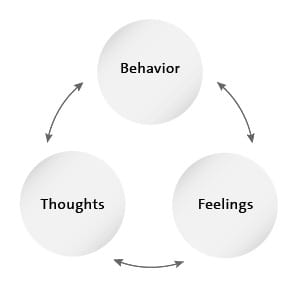'Incessant Sexual Thoughts'
I came across a post on Reddit I wanted to address. I'm going to share my thoughts here in this newsletter 1) because I don't want to risk my post disappearing on Reddit again (I was shadowbanned), and 2) I think the post itself is relatable, at least to me. Here's the original post:

It reads:
I just wanted to post on here and ask for prayer. I've been battling incessant gay thoughts mostly about a friend, but in general vile sexual thoughts. I've been casting them down, but as soon as I do more thoughts flood in. Sometimes even while im casting them down. I haven't given in to anything physical, but there are times I find myself allowing them to linger in my head, and even sometimes enjoying them. Alot of times they come in form of gay jokes in my head, where I imagine myself in conversation with someone. I need prayer.
First of all, I want to normalize that we all have sexual thoughts. They are a normal, healthy part of being human. But sometimes those thoughts feel incongruent with how we see ourselves. There's no shame in having the thoughts themselves. Sometimes we can't control our thoughts, they just pop up. But when they do, we can choose how we respond to them.
There are several lenses by which we can tackle this concern. The original poster (OP) alludes to a spiritual lens, asking for help through prayer. We can also look at this through a psychological lens¹. While both lenses offer support and are complimentary, it's the latter I want to focus on today.
To start, I want to make the distinction between thoughts, feelings, and behavior. I think we often conflate these.
- Thoughts: These are your mental processes – what you think, believe, remember, plan, and imagine. They involve internal dialogue, reasoning, and problem-solving. Essentially, it's everything going on in your mind.
- Feelings (or Emotions): These are subjective experiences of sensations and states of mind. They're often triggered by thoughts or events and can range from joy and sadness to anger and fear. They often also involve a physiological response (like a racing heart, butterflies in the stomach, etc.).
- Behavior: This refers to your actions, reactions, and observable responses to situations. It includes what you do, say, and how you interact with the world around you.
They are all interconnected – thoughts influence feelings, feelings impact behavior, and behaviors reinforce thoughts. It's a cycle.

When we experience persistent thoughts — whether they involve attraction or other desires — they shape our feelings. This might lead us to experience a combination of emotions in this case such as, pleasure, loneliness, confusion, or even distress. And those feelings, in turn, directly influence how we act and respond to the world.
For me, this gives a greater sense of control over my life and a tool in managing unwanted same-sex attractions. Sometimes we can't always control how we feel, or even the urges we experience. But with practice, we can learn to manage our thoughts. Everything else is downstream.
So, how do you manage your thoughts?
I think it starts with self-awareness. We want to cultivate a mindfulness about our own thought processes. The thoughts we give attention to grow the strongest. They're like weeds. The more they're watered, the bigger they grow. If we've spent a lot of time watering those 'incessant sexual thoughts', it's natural that those will grow to dominate and impact our feelings and behavior.
Instead, we need to learn how to distance ourselves from our thoughts. Everyone has unwanted thoughts from time to time. One therapeutic technique is to imagine thoughts as if they're leaves on a stream³. Without judgement, we can just let those leaves (thoughts) float down that stream of consciousness without giving them undue attention. We learn to dismiss the ones that aren't helpful. Granted, I think this is easier said than done; mindfulness is a skill that takes time to develop.
But beyond just managing thoughts, at some point we want to get to the root of why those thoughts are popping up in the first place. Rather than having to periodically mow down those weeds, we eventually want to be able to root them out.

In my experience, I needed clinical support to understand how experiences in my past had set in motion certain thought patterns. I empathize with the OP. I've been there too. Sexual thoughts used to consume my mind. I had to learn that those thoughts weren't me. They were just pointing to earlier wounds that needed attention. What I really craved was approval and love from the men in my life. I needed to feel like I belonged. But that natural longing just leaked out in other ways. Time alone didn't allow those wounds to heal, I needed to actively treat them. Incessant thoughts were just a symptom.
After a few years of working through my past and learning to find healthy ways of connecting with other men, I began to notice a change. Slowly, my sexual thoughts started to decrease. That frantic obsession with other guys was fading. Part of it was because I had started treat the root (i.e., clinical support to work through my past) but the other part was because I stopped watering that weed (i.e., learned ways to manage my thought process).
If I could talk to the OP, I'd tell him/her not to be so hard on yourself. Sexual thoughts are natural. Incessant thoughts, like the ones you might be experiencing, perhaps are symptoms of a deeper wound. Healthy needs desperately trying to be met. Take them as a sign. Merely an indication of your emotional health. Not something to build an identity around.
Don't get discouraged. Start small. Thoughts, while seemingly innocuous, can shape the course of your life. What we water will grow. And sometimes we need help to root out the stubborn weeds. You're not alone, even if it sometimes feels that way. I've been there before.
1) More specifically, Cognitive Behavioral Therapy (CBT).
2) U.S. National Library of Medicine. (2025, August 21). In brief: Cognitive behavioral therapy (CBT). InformedHealth.org [Internet]. https://www.ncbi.nlm.nih.gov/books/NBK279297/
3) The 'Leaves on a Stream' therapeutic technique originates from Acceptance and Commitment Therapy (ACT), a form of cognitive-behavioral therapy developed by psychologist Steven C. Hayes in the 1980s.
Member discussion